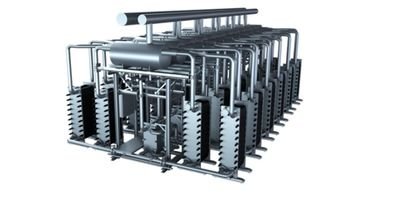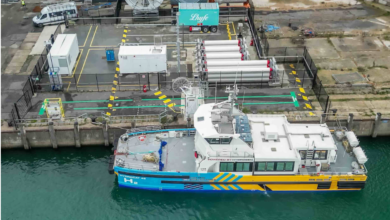Teco 2030 completes onboard carbon capture study; Siemens partners for marine eFuel
When used as a marine fuel, eMethanol can reduce carbon emissions by 94% compared to current fossil fuels.

Teco 2030 ASA has completed Carbon Capture and Storage (CCS) feasibility study with AVL and concluded that onboard Carbon Capture and Storage is technically and financially viable, H2 Bulletin reports.
Teco said that the next phase is now a pilot development and test for maritime applications, focusing on verification and optimisation of the technologies.
Teco believes that carbon emission can be drastically reduced in the shipping industry by using onboard Carbon Capture and Storage equipment. It is estimated that an average capsize ship with an annual consumption of around 15k tonnes of fuel can produce equivalent to around 45k tonnes of CO2 emissions. The emission can be reduced by 30-40% with Teco CCS technology onboard.
Tore Enger, CEO of TECO 2030 ASA, said, “The carbon capture and storage is very attractive for shipowners who seek to future proof their vessels to meet decarbonisation plans and strategies.”
Meanwhile, Siemens Energy is providing an equity investment to Liquid Wind AB and will support the development of eMethanol facilities. Liquid Wind’s facilities will integrate a 70-MW PEM-Electrolyser by Siemens Energy, producing green hydrogen using renewable power. The green hydrogen will be combined with biogenic CO₂ to form carbon-neutral liquid fuel for the shipping industry saving 100k tonnes/year of CO₂. Siemens will also provide the entire power distribution, electrification, instrumentation, motors, drives and plant-wide automation.
Last month, Liquid Wind and Carbon Clean also agreed to produce carbon-neutral fuel. Carbon Clean will develop, standardise, and supply carbon capture technology and expertise to support the production of carbon-neutral marine fuel by capturing biogenic carbon dioxide emissions from a local industrial site. Within the Liquid Wind facility, the CO₂ will be combined with renewable hydrogen to form the carbon-neutral liquid fuel, eMethanol.
